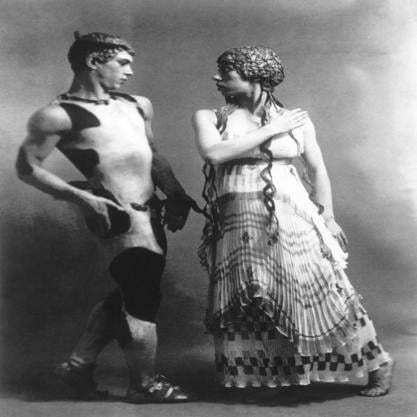Article
Nijinska, Bronislava (1891–1972) By Garafola, Lynn
Article
The premiere female ballet choreographer of the first half of the twentieth century, Bronislava Nijinska experienced the transformative power of the Russian Revolution and discovered untapped creative powers in the chaotic moments that followed it. Rejecting the ‘‘acrobaticism,’’ and what she perceived as the stale conventions of nineteenth-century Russian ballet, she was an architect of twentieth-century neo-classicism and an early exponent of the plotless ballet. Although ballet technique remained the foundation of her work, she augmented it with movements originating in other forms, energized it with rhythms of modernity, minimized narrative, and insisted that movement alone constituted the primary material of dance. She brought a woman’s sensibility to her choreography, evident in Les Noces (The Wedding) (1923), her greatest work, and Les Biches (also known in English as The House Party, 1924), both produced for Diaghilev’s Ballets Russes, and many of her works rested on gender ambiguity, the probing of gender boundaries, and a mistrust of conventional gender roles. A key figure of Russia Abroad, she contributed to the many diasporic or émigré companies, including her own short-lived ensembles, which dotted the ballet landscape of the interwar years, and through her career as a freelance choreographer played a crucial role in the international dissemination of modernism. She choreographed the original versions of several modernist scores, introducing them to the ballet repertoire. In her multiple roles as teacher, choreographer, and ballet mistress she influenced the careers of numerous dancers and choreographers, including Frederick Ashton and Ninette de Valois. Finally, she was an articulate writer and the author of an acclaimed volume of memoirs, in addition to a major treatise on movement.


